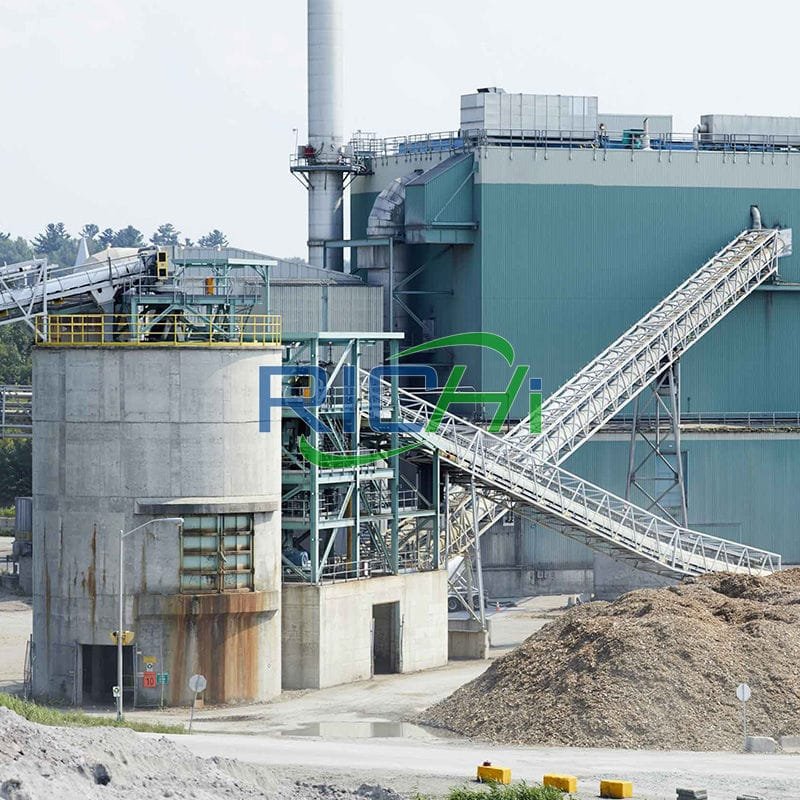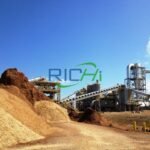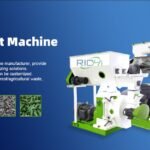In the ever-evolving landscape of renewable energy solutions, biomass has emerged as a game-changer, offering a sustainable and versatile alternative to traditional fossil fuels. At the heart of this burgeoning industry lie pellet lines, sophisticated systems designed to transform raw biomass materials into compact, energy-dense pellets, fueling the transition towards a greener and more sustainable future. As the demand for bioenergy continues to soar, the availability of high-quality pellet lines for sale presents a unique opportunity for investors, entrepreneurs, and industry players to capitalize on this rapidly growing market.
The Rise of Biomass Energy Biomass energy, derived from organic matter such as wood, agricultural residues, and dedicated energy crops, has gained significant traction in recent years. This renewable energy source offers numerous advantages over traditional fossil fuels, including:
- Reduced Carbon Footprint: Biomass is considered a carbon-neutral fuel source, as the carbon dioxide released during combustion is offset by the carbon absorbed during the growth of the biomass feedstock.
- Versatility: Biomass can be converted into various forms of energy, including heat, electricity, and transportation fuels, making it a versatile and adaptable energy solution.
- Waste Utilization: Biomass energy production can utilize waste materials from various industries, such as forestry, agriculture, and municipal solid waste, contributing to a circular economy and reducing waste disposal challenges.
- Domestic Energy Security: By harnessing locally available biomass resources, countries can reduce their dependence on imported fossil fuels, enhancing energy security and economic stability.
- Rural Development: The production and utilization of biomass energy can create new economic opportunities in rural areas, supporting local communities and promoting sustainable land management practices.
The Pellet Line: A Comprehensive Solution A pellet line is a complete and integrated system designed to transform raw biomass materials into high-quality, energy-dense pellets. These sophisticated setups encompass a range of specialized equipment and processes, ensuring efficient and reliable pellet production. The key components of a typical pellet line include:
- Feedstock Handling and Preparation
- Grinding and Sizing
- Conditioning
- Pelleting
- Cooling and Drying
- Screening and Packaging
Factors to Consider When Purchasing a Pellet Line When considering the purchase of a pellet line, several factors must be taken into account to ensure a successful investment and optimal performance:
- Production Capacity
- Feedstock Compatibility
- Technology and Automation
- Energy Efficiency
- Quality Standards
- Supplier Reputation and Support
- Installation and Commissioning
Related post: https://www.richipelletmachine.com/wood-pellet-making-machine-price/
Opportunities and Future Outlook As the global demand for renewable energy sources continues to rise, the availability of pellet lines for sale presents a unique opportunity for investors, entrepreneurs, and industry players to capitalize on this rapidly growing market. The bioenergy industry offers a range of potential applications, including:
- Power Generation
- Industrial Heating
- Residential and Commercial Heating
- Biofuel Production
With ongoing research and innovation in areas such as process optimization, energy efficiency, and alternative biomass sources, the bioenergy industry is poised for continued growth and development. By investing in high-quality pellet lines, industry players can position themselves at the forefront of this sustainable energy revolution, contributing to a greener and more resilient future.
In conclusion, the availability of pellet line for sale presents a unique opportunity to capitalize on the rapidly growing bioenergy industry. By carefully considering factors such as production capacity, feedstock compatibility, technology, and quality standards, investors and entrepreneurs can make informed decisions and unlock the potential of this sustainable and versatile energy source. As the world continues its journey towards a greener and more sustainable future, the bioenergy industry, powered by innovative pellet lines, will play a pivotal role in shaping a more resilient and environmentally conscious energy landscape.


